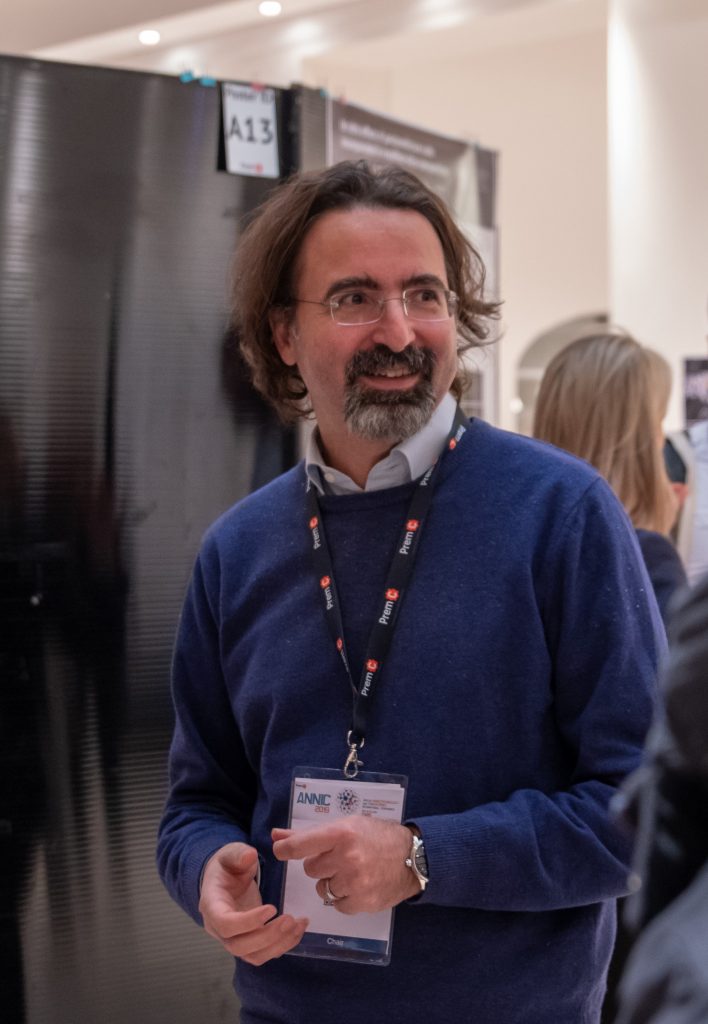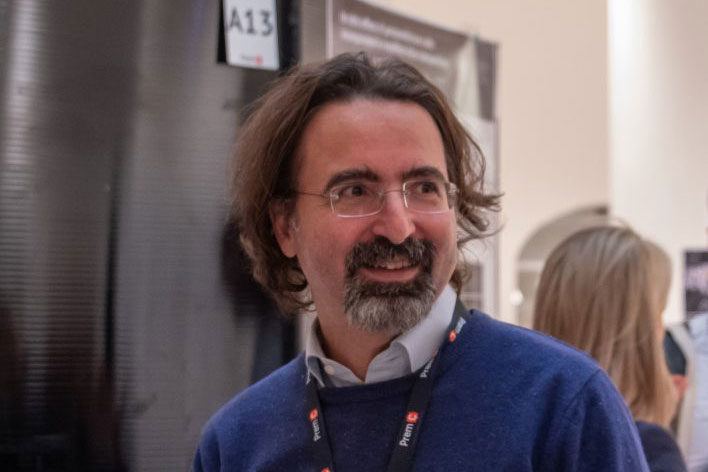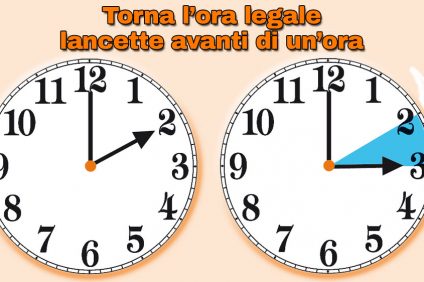A broad spectrum antiviral drug. For the coronavirus but also to deal with other new viruses. “It is necessary to be prepared for ever new health emergencies, in particular of a viral nature, the most frequent”. So he explains Francesco Stellacci, former full professor at MIT in Boston, now at EPFL in Lausanne.

Professor Stellacci has been involved for about ten years in the experimentation of a broad-spectrum drug capable of attacking the preserved parts of the virus (common to many types of viruses) and destroying them. Drug which obviously must not be toxic to humans. “We tested a first molecule on mice for herpes and colds. In these animals it works. This could also be the case for the coronavirus. We must try. However we are only in this first phase ”.
Francesco Stellacci does not like media exposure but his research gives hope. However, they represent one of the possibilities against COVID-19. At the beginning of this emergency there was a lot of talk about the flu. It was rumored that the coronavirus was just a little more serious ...
Like the flu the Coronavirus is a respiratory virus, the problem is that it is much more infectious than the flu. The R0, the number of infected by a single patient, for this virus is estimated at around 2,5 while for the flu it is 1,4. So the flu after 10 infections has 97 infected. If we do the same thing with the coronavirus (calculating that no one heals in ten days) the infected are 23. At this level of infected the coronavirus is 234 times more infectious. It is also ten times more deadly. A coronavirus infection is like having 2.400 flu infections all together on the healthcare system. So it's not a flu.
Can we compare Covid-19 to the great pandemics of the past, for example the Spanish one of the early twentieth century?
The pandemics of the past are not comparable with the current ones, because today we have much more means to treat those who become infected. At the time, everyone who now needs a respirator would have died, even the youngest ones. Therefore a comparison on the epochs cannot be made. Despite the large number of deaths, many people are now being saved. Unfortunately, between 10 and 20 percent of patients are in need of intensive care. For some reason, much more in Italy than elsewhere. We still don't know why. And we don't know why it is worse in Lombardy than in the rest of Italy. Certainly there were two important outbreaks there at the beginning, and close to a large urban center.
His research group has been working on a broad spectrum antiviral for some time. Why this research (started long before the current emergency) and what motivated it?
We have always been working on broad spectrum antivirals. For ten years I have been saying that there is this need. A broad spectrum antiviral is a dream, because there is no antiviral that works on so many viruses. The idea is to find a drug that acts like antibiotics with bacteria, for example like penicillin which was the first. Because there is a real threat that new viruses always emerge. We must therefore try to be prepared and have something that works against a virus that we do not yet know about. And today, unfortunately, we no longer have to explain the reason for this urgency as we should have done at the beginning of our research. We cannot continue to be so unprepared, we must have weapons. One, it can be broad spectrum antiviral.
You are therefore working on a drug. How would it work?
The drug molecule attaches itself to the conserved parts of viruses, the ones that viruses have in common. Once attached to these parts, it crushes the virus and causes it to burst. This drug, of course, will have to destroy the virus but it will not have to be toxic to humans.
In what timeframe do you think you will reach concrete results?
It is a formula that we have not yet tested, we have come to experiment with it for herpes and colds up to mice. It makes one virus at a time. Science has its times and everything is difficult right now, even getting a chemical compound shipped from Asia. To get to human experimentation it will take 12, 15 months if all goes well. Everything, however, must go smoothly. It could happen that when testing larger animals, high toxicity occurs that we could not predict. It could be that we have everything ready and that some unexpected, uncontrollable and predictable happening….
Meantime? There is a lot of talk about vaccines. Can we hope to have faster times?
Much work is underway on vaccines, certainly more than drugs. The success rate could be high, around 80 percent, but we are not yet certain. I know well the colleague who is working on the vaccine transmitted through a patch, he is a Bari like me and he is very good. They have finished animal testing and are moving on to human testing. I would say it will take another year, smoothly. We hope even sooner. However, a way will have to be found, not only in Italy but in the world, to survive this situation… We have to keep people still for a while longer.
Exactly, how should we behave in the meantime? You can't just think about staying at home….
We will have to think about a reorganization of the work. Do many, many tests, blanket, not to stay another year and a half at home. Understanding who is positive, who has antibodies. These latter subjects, at least for a while, should be immune. The problem is figuring out how long, it could be two months or even a lifetime. The hope is that Covid-19 behaves like everyone else virus, but we are not certain because it is a virus that changes a lot. For respiratory viruses this is quite normal.
In the context of the regulatory mechanisms of society, how much will behavioral models change, in particular those of Italians?
For years I have predicted the arrival of viral infections, my analysis has not changed. Viruses mutate and new ones are created all the time. I don't have many doubts about this. For this reason, those who had been strongly affected by Sars were more ready. South Korea, Taiwan, Hong Kong, Singapore… In Asia, if a child is cold it is normal for him to wear a mask to go to school, so as not to infect others. Here the mask still looks like the Batman mask, nobody would like to wear it. I believe this will change, and it will be one of the most noticeable changes. Of course, thinking of Italy, tourism, cities like Venice… it will be difficult, it's hard to say. But we must think that there will be less acceptance, especially in the winter season, of crowded places. I hope that we will also begin to have a health system that is more ready for any emergencies. Let us begin to understand that certain threats are increasingly tangible. This is a test that will prepare us for other tests.
Professor, tell us how your research began, what led you to deal with broad spectrum antivirals.
Until about ten years ago I was teaching at MIT in Boston. I was almost forty years old, a professorship, an international fame. I then asked myself what I wanted to do with my career and I said to myself, let's do something useful for humanity. I realized that viral infections were (perhaps no longer tomorrow) very neglected infections. In particular on the front of emerging viruses. It was overlooked that these infections (for example, RSV, the Syncytial Respiratory Virus) kill half a million people a year in Africa. Without the Western world caring particularly. I said to myself, if I create a broad spectrum antiviral I can help even these very poor populations. Because a drug of this type can be declined on multiple viruses, this is its main advantage. Personally, as a materials scientist, the only thing I could do when faced with a virus was break it. So I came up with a method to create the break. Will this strategy of mine work? I still don't know for sure.
In these days we hear about Italian scientists from all over the world. All very good, all very busy in their research to defeat the coronavirus, all highly esteemed in universities where they do research abroad, like you….
I can assure you that it's not just coronavirus research that speaks Italian. For example, if all the bridges in the world started to fall tomorrow, you would see a lot of Italians in the world dealing with bridges. There has been in our generation, and unfortunately it does not stop, a diaspora of highly qualified Italians of historical dimensions. Only in a century will we truly understand the real significance of this phenomenon.
# Italian in the heart





